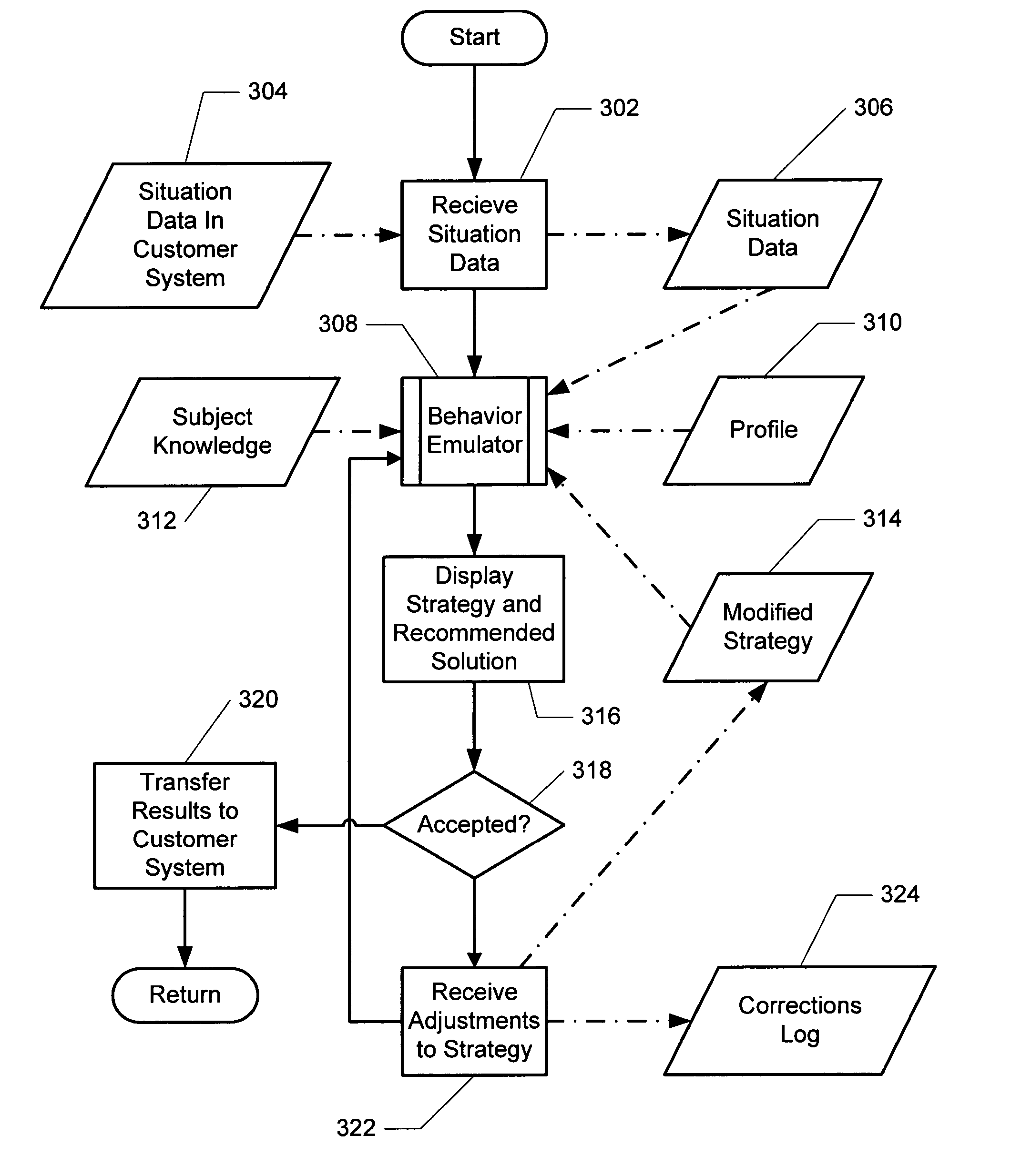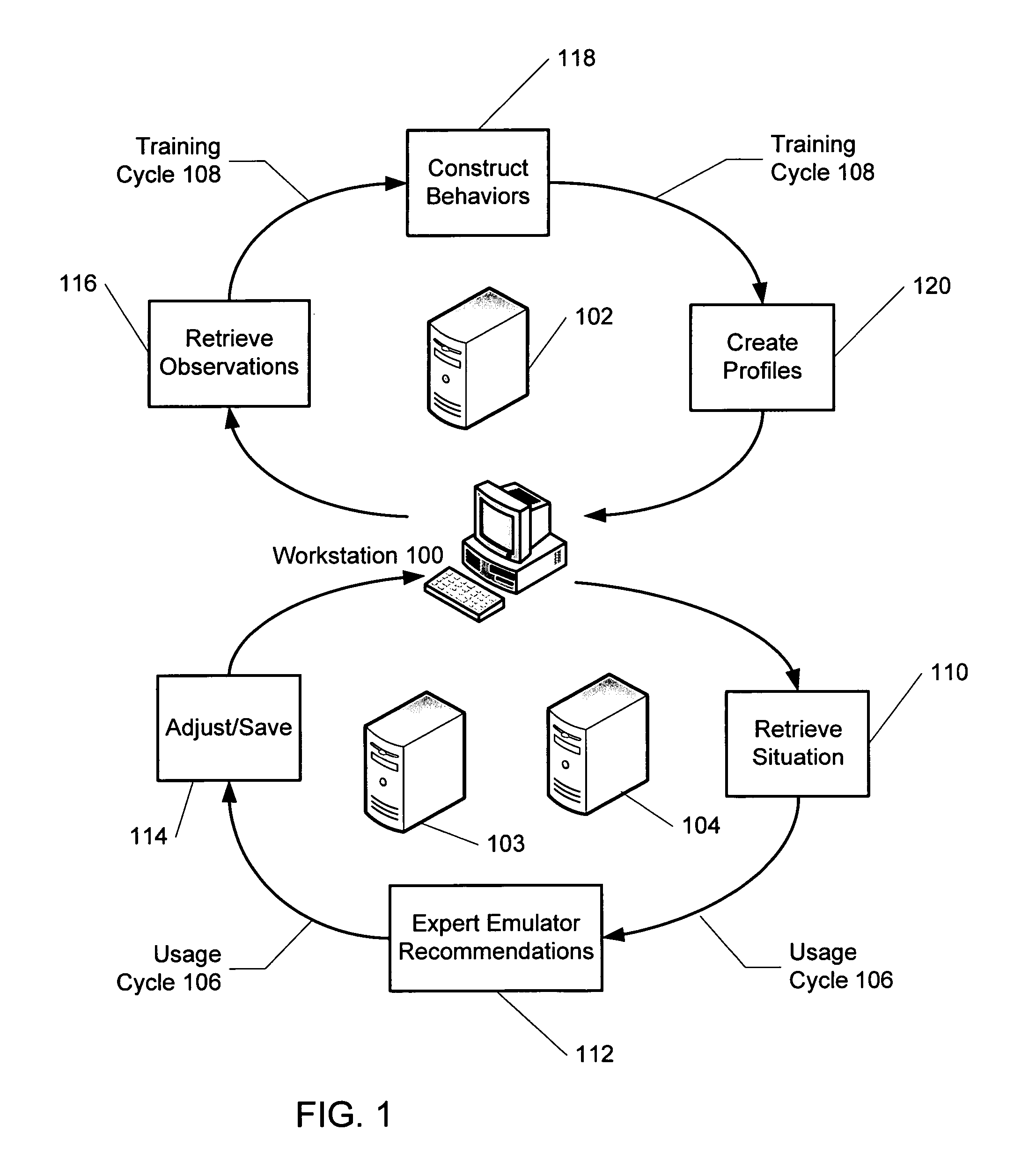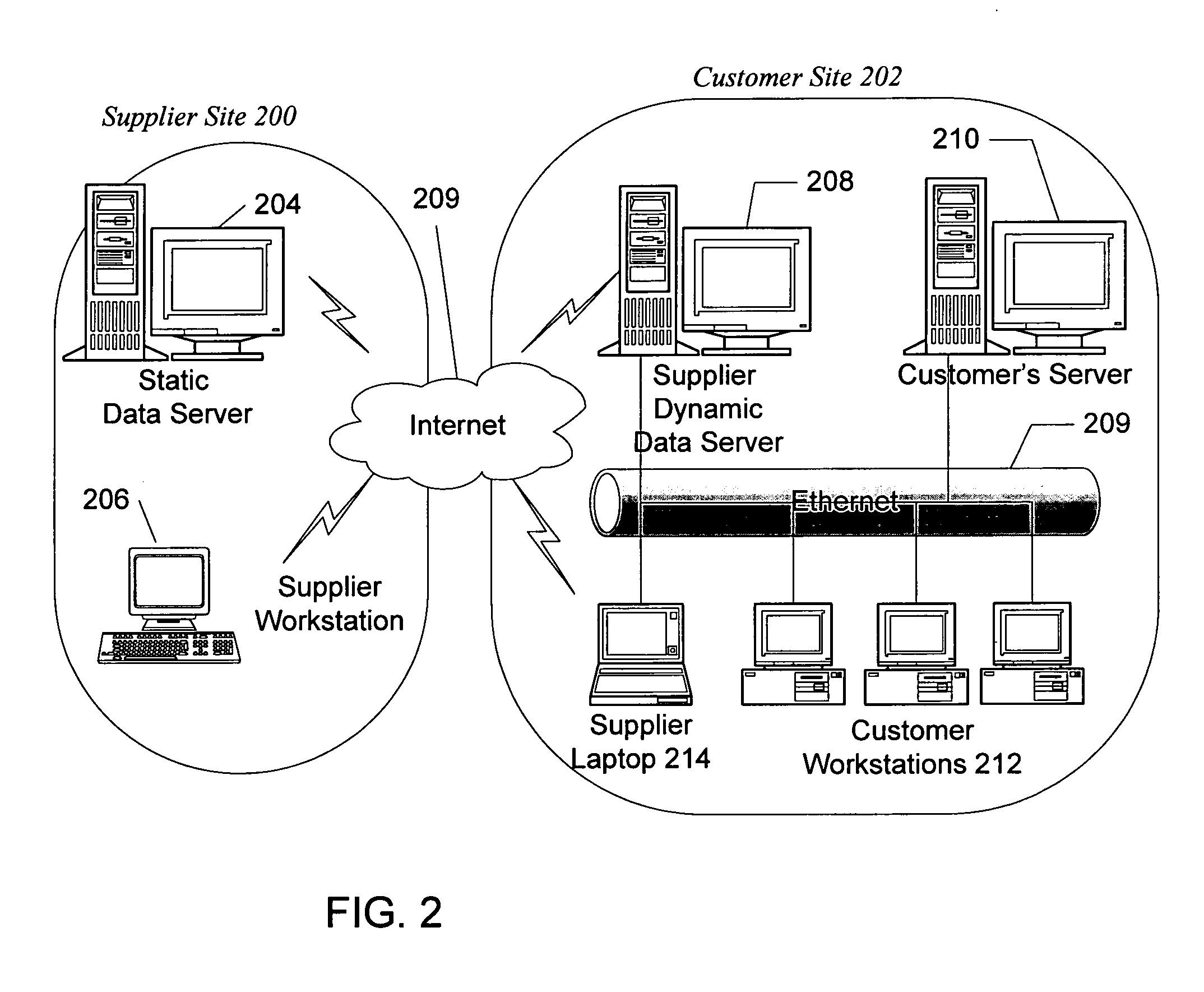Multi-dimensional, expert behavior-emulation system
a decision-emulation system and multi-dimensional technology, applied in frequency-division multiplex, data switching networks, instruments, etc., can solve the problems of multi-dimensional tasks, inability to easily group into a relatively small number of classes, and decision-making processes that do not lend themselves to automated or expert processes provided in traditional recognition
- Summary
- Abstract
- Description
- Claims
- Application Information
AI Technical Summary
Benefits of technology
Problems solved by technology
Method used
Image
Examples
Embodiment Construction
[0026]In the present invention, expertise is derived from past experience of experts making decisions on the type of situation data being processed. The decision-making process itself is empirical as the experts have learned what method choices applied to the situation data representing a situation provide a best plan of action to solve the situation The choice of method to solve the situation may or may not include a choice of parameters to be used with that method. The expert in working with situation data, that has multiple dimensions as discussed herein, has become an expert heuristically, i.e. by trial and error, and developed an extensive personal knowledge base and historical background to analyze and solve problems provided by the situation data.
[0027]For example, in merchandise allocation an allocator may spend six months or a year learning how to effectively allocate retail goods to a chain of stores. As the merchandise allocator becomes more expert, the profitable allocat...
PUM
 Login to View More
Login to View More Abstract
Description
Claims
Application Information
 Login to View More
Login to View More - R&D
- Intellectual Property
- Life Sciences
- Materials
- Tech Scout
- Unparalleled Data Quality
- Higher Quality Content
- 60% Fewer Hallucinations
Browse by: Latest US Patents, China's latest patents, Technical Efficacy Thesaurus, Application Domain, Technology Topic, Popular Technical Reports.
© 2025 PatSnap. All rights reserved.Legal|Privacy policy|Modern Slavery Act Transparency Statement|Sitemap|About US| Contact US: help@patsnap.com



